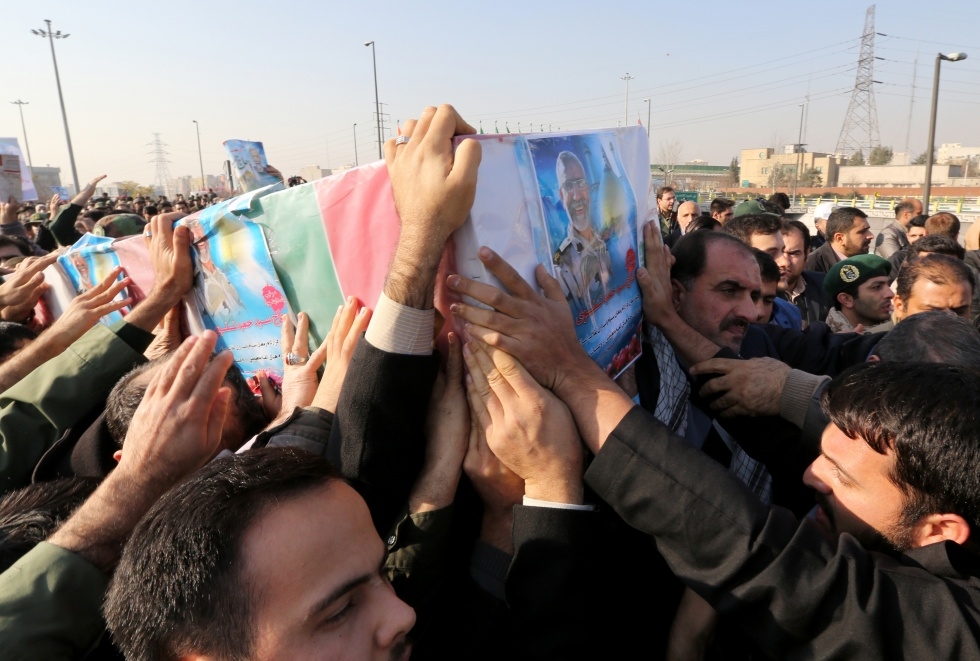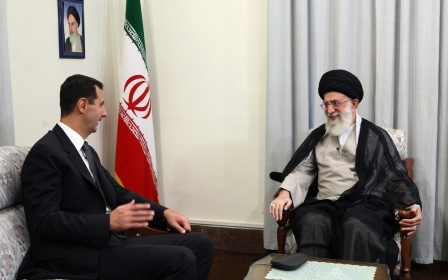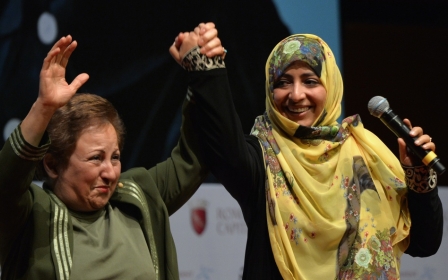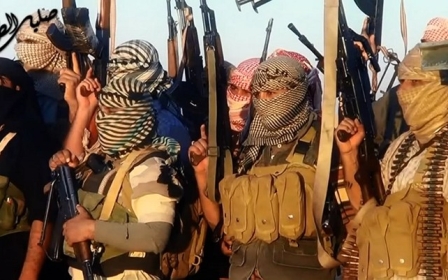IS says killed Iranian military adviser in Iraq

The Islamic State group has claimed the killing of a senior Iranian officer advising Iraqi forces in their fight against the militants, in posts on Internet forums on Monday.
Iran's Revolutionary Guards on Sunday announced the death of Brigadier General Hamid Taghavi, who had been training the army and Iraqi volunteers in the city of Samarra, north of Baghdad.
One forum posted an image of the officer standing next to three others, with a red circle around his head and the caption: "A photo of the miscreant Hamid Taghavi who was killed by the men of IS in the region of Samarra."
Another image on the forum purportedly showed the body of the Iranian officer.
IS has not said how Taghavi died, but his funeral was held in Tehran on Monday in the presence of several senior officials.
"If people like the martyr Taghavi were not engaged in Syria and Iraq against the terrorists, the enemy would surely look to create insecurity in our country," Supreme National Security Council secretary Ali Shamkhani told mourners, the official Fars news agency reported.
Shiite Iran has sent military advisers to Iraq to help train and equip troops and allied militias in their counter-offensive against IS, which seized large areas of the country in a lightning June assault.
It has also armed Kurdish forces in northern Iraq and Iranian media have reported the deaths of several military personnel in both Iraq and Syria this year.
Iranian Defence Minister General Hossein Dehgan on Monday underscored his country's support for Iraq, during talks in Tehran with his Iraqi counterpart Khaled al-Obeidi.
"The Islamic Republic of Iran's support for the army and military forces of Iraq is a strategic policy," he said, according to the official IRNA news agency.
Tehran is "ready to develop military cooperation with Iraq in order to boost its defensive capacity", he added.
Iran did not join a US-led coalition conducting air strikes against IS positions in Iraq and neighbouring Syria.
Samarra, 110 kilometres (70 miles) north of Baghdad, is a mainly Sunni city but also home to the Askari shrine, one of the holiest sites in Shiite Islam.
Several Iranian officials, including President Hassan Rouhani, have declared the preservation of Iraqi Shiite sites a "red line".
Iran, part of the problem
However, many observers have noted that Iranian-backed Shiite militias have deepened the sectarian divide in Iraq, and in some cases are driving Sunnis to turn to radical groups for help.
"[IS] has managed to make itself into the leading defender of Sunni interests against Shiite oppression," wrote Max Boot in Commentary magazine.
"The only way to dispel ISIS’s core appeal is to show that Sunnis can be protected against Shiite depredations without flocking to ISIS for protection," he said.
Boot said the United States is "trying to accommodate an Iranian power grab in both Syria and Iran", at a time when "Iran-backed forces in both Iran and Syria have carried out terrible atrocities against Sunni civilians."
"To truly sap ISIS’ ideological appeal, the US needs to stop flirting with Tehran and start acting to mobilize a Sunni rebellion against ISIS with guarantees that Sunni communities will have their rights respected after ISIS is overthrow," he argued.
Despite the warming of American-Iranian relations, however, US President Barack Obama said Washington will not be opening an embassy in Iran soon.
"I never say never, but I think these things have to go in steps," Obama said in an interview with National Public Radio that aired Monday.
Unlike Cuba, Obama said, Iran is "a large, sophisticated country that has a track record of state-sponsored terrorism, that we know was attempting to develop a nuclear weapon -- at least the component parts that would be required to develop a nuclear weapon."
New MEE newsletter: Jerusalem Dispatch
Sign up to get the latest insights and analysis on Israel-Palestine, alongside Turkey Unpacked and other MEE newsletters
Middle East Eye delivers independent and unrivalled coverage and analysis of the Middle East, North Africa and beyond. To learn more about republishing this content and the associated fees, please fill out this form. More about MEE can be found here.




